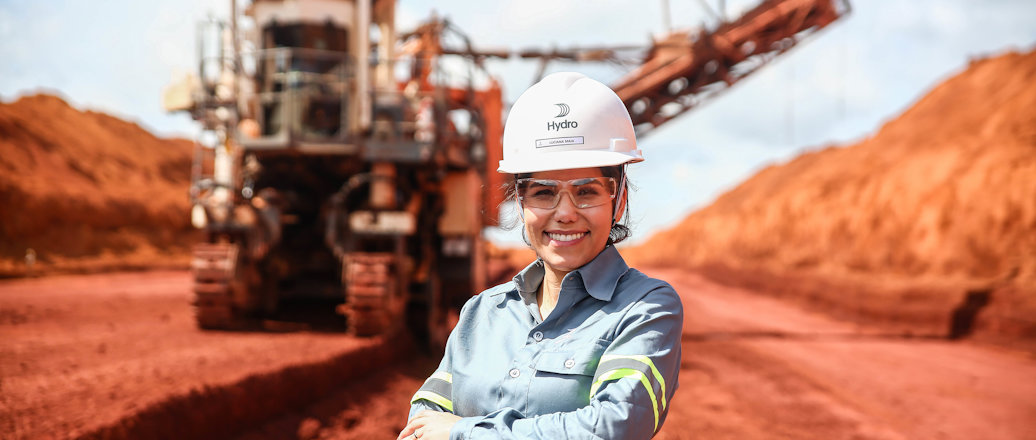To improve our competitive position and secure access to the raw material for aluminium production, Hydro made the strategic move in 2011 to buy the aluminium assets from Vale, a Brazil-based mining and metals company.
Hydro’s bauxite mine, Paragominas, and alumina refinery, Alunorte, are located in the state of Pará in Northern Brazil. They are connected by a 244 km bauxite slurry pipeline. Located next to Alunorte is the primary aluminium plant Albras, where Hydro has 51 percent ownership. In addition, Hydro has three aluminium extrusion plants in Southern Brazil. Hydro employs around 6,000 permanent employees and 8,000 contracted workers (full-time equivalents) in Brazil in total.
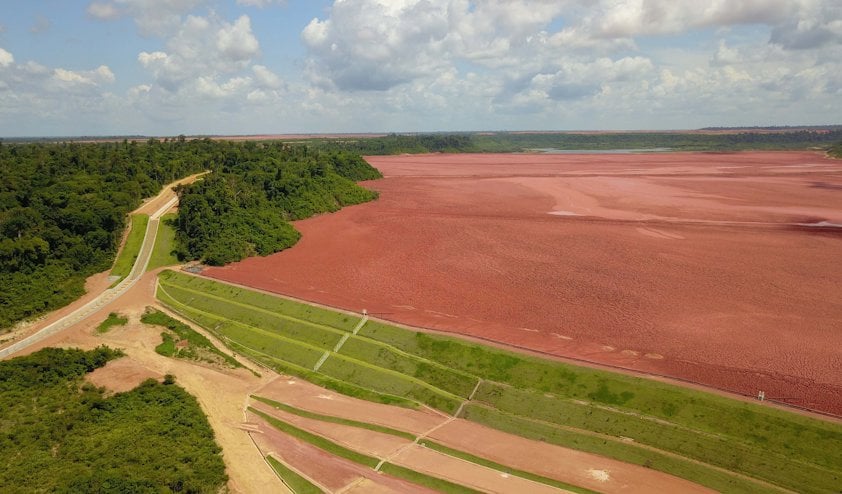
Hydro has had a presence in Brazil since the late 1970s through an ownership stake in the bauxite mining company Mineração Rio do Norte (MRN) and an ownership share in Alunorte alumina refinery since 2000. In April 2023, Hydro signed an agreement with Glencore, who will acquire 30 percent of Alunorte and Hydro’s 5 percent ownership in MRN.
Hydro Bauxite & Alumina, including the alumina refinery Alunorte and the bauxite mine Paragominas and Hydro’s Albras smelter, is certified according to the Aluminium Stewardship Initiative (Performance Standard and Chain of Custody), which is a leading standard for responsible production in the Aluminium sector.
Responsible bauxite mining in Paragominas
Bauxite mining is a form of surface mining, known as strip mining, which involves the removal of vegetation, topsoil, and overburden in order to get to the underlying bauxite deposit. Bauxite reserves are widely distributed around the world, particularly in tropical and subtropical regions. Hydro’s mine at Paragominas is in an area that is recognized as the deforestation belt around the central Amazon region. Within the mine itself, several areas were exposed to selective logging and clear-cutting before the commencement of bauxite mining operations in 2007. Reforestation and wildlife management at Paragominas are core elements of our sustainability strategy.
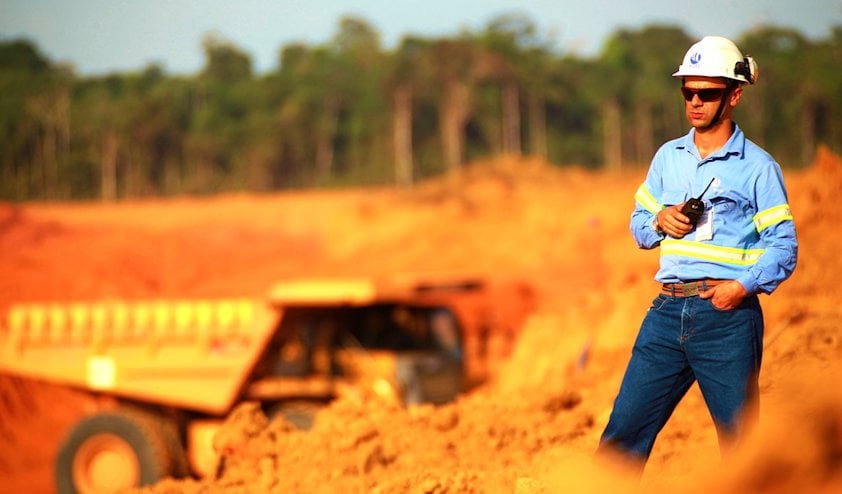
Hydro’s operations in Pará use state-of-the-art technology for treatment and disposal of the residue generated from the production of bauxite and alumina. Since late 2021, a new method for storing bauxite tailings has proven to be a more sustainable solution that supports our ambitions to protect biodiversity and reduce our environmental footprint. The method, called Tailings Dry Backfill, puts the dried leftovers from bauxite mining back in areas at Paragominas that have already been mined. The areas are then rehabilitated and reforested.
The method is a success in full operation that eliminates the use of large dams for permanent storage of bauxite tailings.
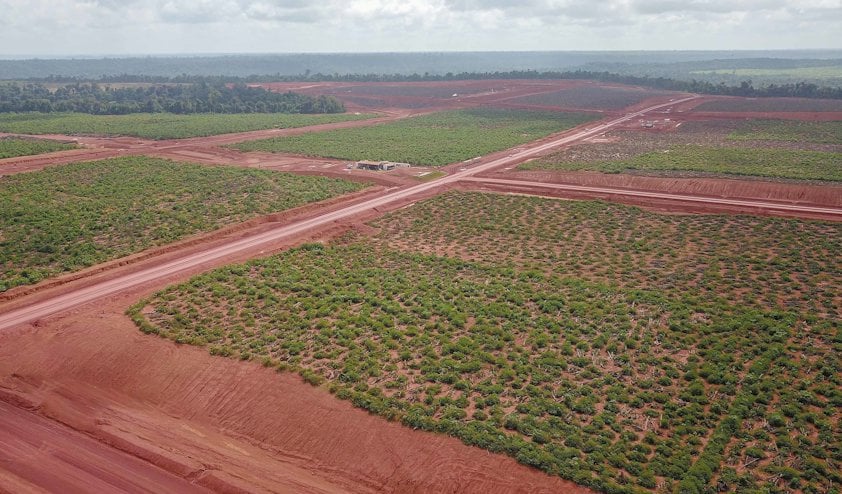
Technology and operational safety at the forefront in Barcarena
At the Alunorte alumina refinery in Barcarena, Hydro continuously makes investments in technology throughout the production process, focusing on operational safety, responsibility, and sustainability. Alunorte was the first refinery in Brazil to introduce large-scale use of one of the world's most modern methodologies for disposal of residues, using nine filter presses that generate a residue with very low moisture content for an enhanced compacting process. This means that our bauxite residue now occupies only one fourth of the surface area compared to our historical bauxite residue deposit.
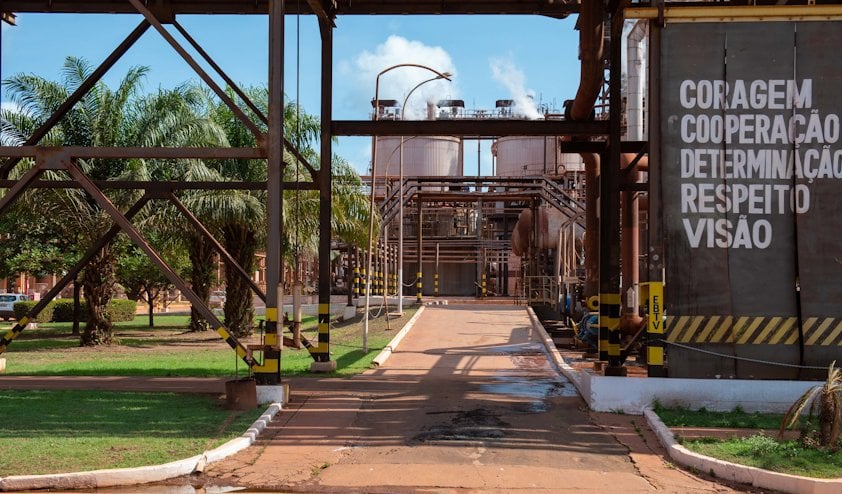
In addition, the refinery also invests heavily in geotechnical structure management with advanced monitoring for the safety and stability of the deposits. Alunorte has invested more than BRL 1 billion to ensure the disposal of residues with the most modern technology available.
Alunorte is also preparing for an expected increase in rainwater volumes due to climate change. The refinery has invested BRL 675 million to increase storage capacity from four to six times the size of an Olympic pool per hour, one of the largest water treatment systems in Brazil. This system ensures that all effluent will be properly treated before discharge into the external environment, in accordance with local regulations.
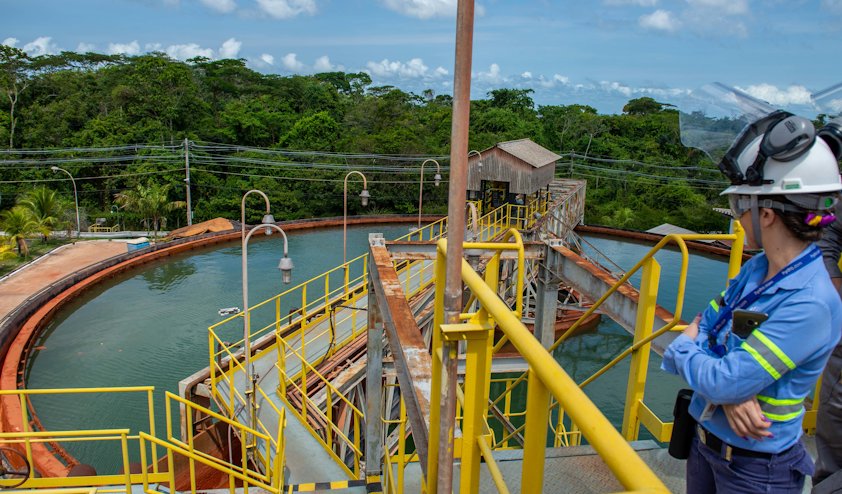
Like other municipalities in the Brazilian Amazon, the Barcarena region, where the Alunorte alumina refinery and Hydro’s Albras smelter is located, ranks below the Brazilian average on the Human Development Index and has challenges related to basic public services such as education, safety, and sanitation. We play our part to ensure sustainable development of the region by investing technical and financial resources in education and skills development that empower local communities.
Sourcing responsibly
Hydro’s supplier and business partner requirements regarding social and environmental responsibility are, as stated in our global directives and procedures, an integral part of all stages of the procurement process. The requirements cover issues related to the environment, human rights, anti-corruption, and bribery, and working conditions, including the work environment. These requirements set out in Hydro’s Supplier Code of Conduct are based on international standards, including UN Global Compact, the ILO core conventions, UN Guiding Principles on Business and Human Rights, and other UN documents and instruments. Hydro puts great emphasis on responsibility in our supply chain.
Developing and strengthening suppliers is an important pillar of our approach. We work to improve supplier performance through corrective action plans or supplier development programs. In Brazil, the Supplier Development Program has reached almost 200 local businesses. Read more about this in the 2022 Annual Report.
Updated: 5 May 2023







